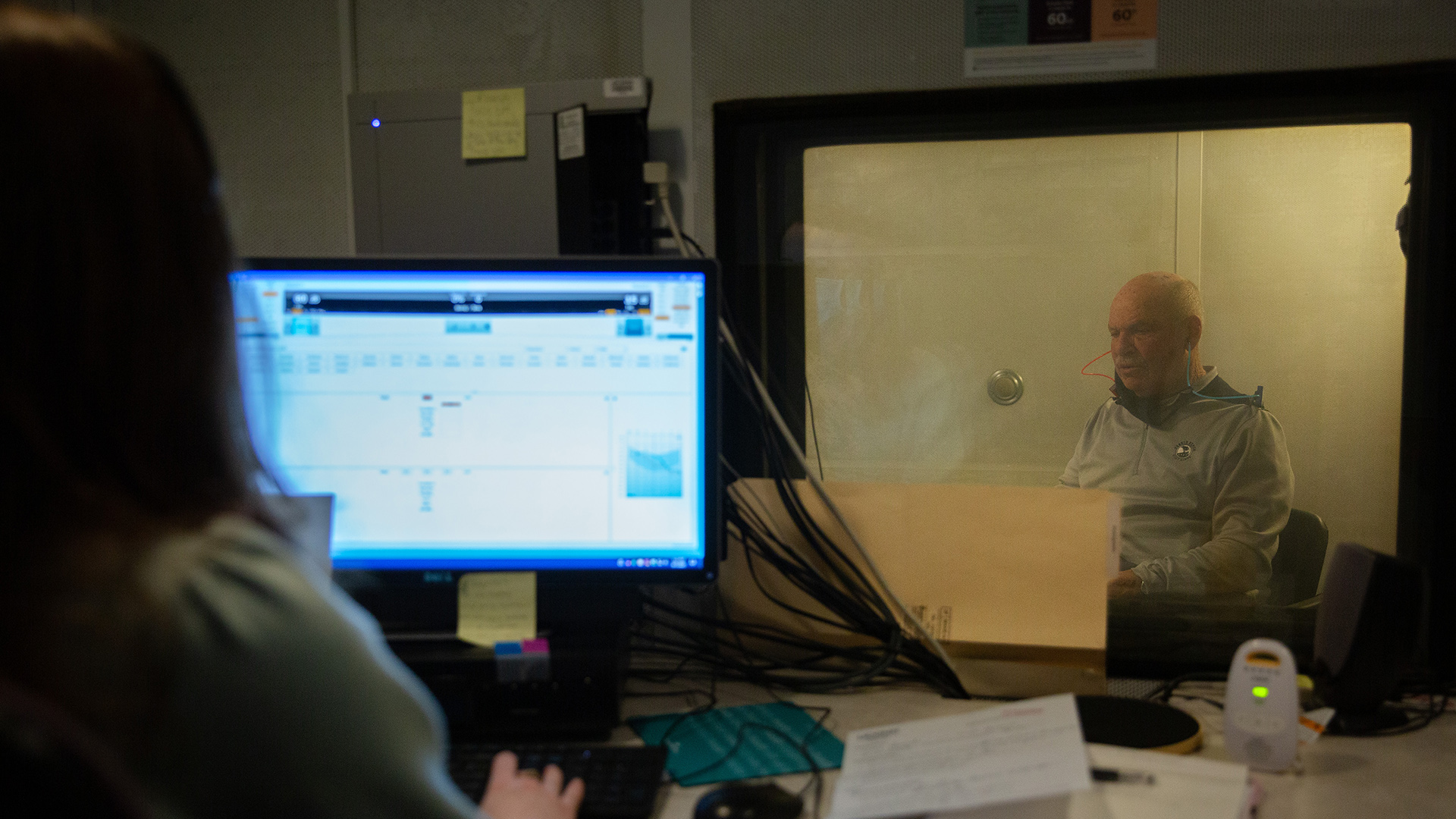Audiology Services
The UConn Speech and Hearing Clinic offers diagnostic evaluations, electrophysiologic testing, and treatment services.

What We Offer
Comprehensive Audiologic Evaluations
We offer evaluations for individuals of all ages, from newborns to adults. Your hearing care professional will ask several questions to get to know you and your hearing history. They will complete a diagnostic test that may include any of the following procedures to assess the degree and type of hearing loss you are experiencing. Once completed, they will review all results and discuss the next appropriate steps for your hearing needs.
- Air conduction testing.
- Bone conduction testing.
- Speech testing.
- Tympanometry or acoustic immittance testing.
- Distortion Product Otoacoustic Emissions testing.
Cochlear Implant Assessment, Mapping, and Servicing
There are some who have hearing loss so severe, even hearing aids cannot provide them with appropriate audibility or improvement in communication. A cochlear implant is a surgically implanted device that, through electrical stimulation of the auditory nerve, provides a person who has poor performance with hearing aids, sound perception and an opportunity to improved speech understanding in both quiet and noisy environments.
In partnership with neurotologists at UConn Health – Farmington, we currently implant and program Cochlear Americas cochlear implants.
A cochlear implant evaluation would need to be completed to determine if you are a candidate. Please call the front desk at (860) 486-2629.
Auditory Brainstem Response Testing
An Auditory Brainstem Response (ABR) test tells us how the inner ear and the auditory pathway for hearing are working. The ABR can be used to determine the degree of hearing loss for babies and children who cannot complete traditional testing. It can also be used to determine certain causes of hearing loss in adults.
An ABR is completed by placing small electrodes on various parts of the head. Sound is then played into the ear and the brain’s response to that sound is recorded.
Hearing Aid Fitting and Management
After a hearing evaluation is completed and it is determined you are a candidate for amplification, you will undergo the following process to obtain hearing aids:
- Hearing aid evaluation.
- Hearing aid fitting.
- Hearing aid follow up.
Learn more about the process and types of hearing aids we offer.
Fitting and Management of Assistive Listening Technology/Accessories
While hearing aids will work to provide improved audibility to the world around you, they are often only one piece to the puzzle of hearing better. Assistive listening technology can be used in conjunction with your hearing aids to overcome things such as distance, background noise, or reverberation.
Custom Hearing Protection/Swim Earmolds
Custom earmolds and ear plugs are made to fit the exact shape and size of your ear canal. If over the counter hearing protection/ear plugs do not fit well, or they do not provide you enough attenuation, custom products may be an option for you. Custom earmolds come in a variety of materials and can provide full attenuation or filtered protection, so you can still communicate while protecting your hearing.
Custom hearing protection can be used for:
- Musicians.
- Concert fans.
- Industrial & construction personnel.
- Hunters.
- Sleep plug users.
- Swimmers.
Christine Haines is a certified Gold Circle Audiologist with Sensaphonics.